Graham Reid | | 3 min read
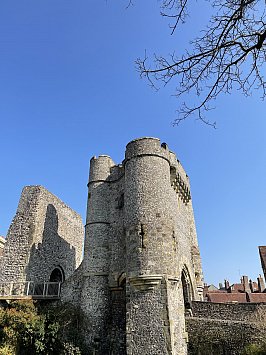
The medieval walled town of Lewes -- pronounced “Lewis” -- on England’s south east coast, has a fascinating history: battles were fought in and around the crumbling Norman castle which looks across rooftops and a broad landscape to chalk hills in the east, and over the narrow streets below which are crowded with traffic these days.
Lewes Castle and Barbican House Museum are fascinating and educational, here you can learn that the castle toilets were called garderobes and were simply a chute which took the excrement down the outside wall of the castle.
Chamber pots would similarly be emptied over the walls and it was someone's job to clear all that away.
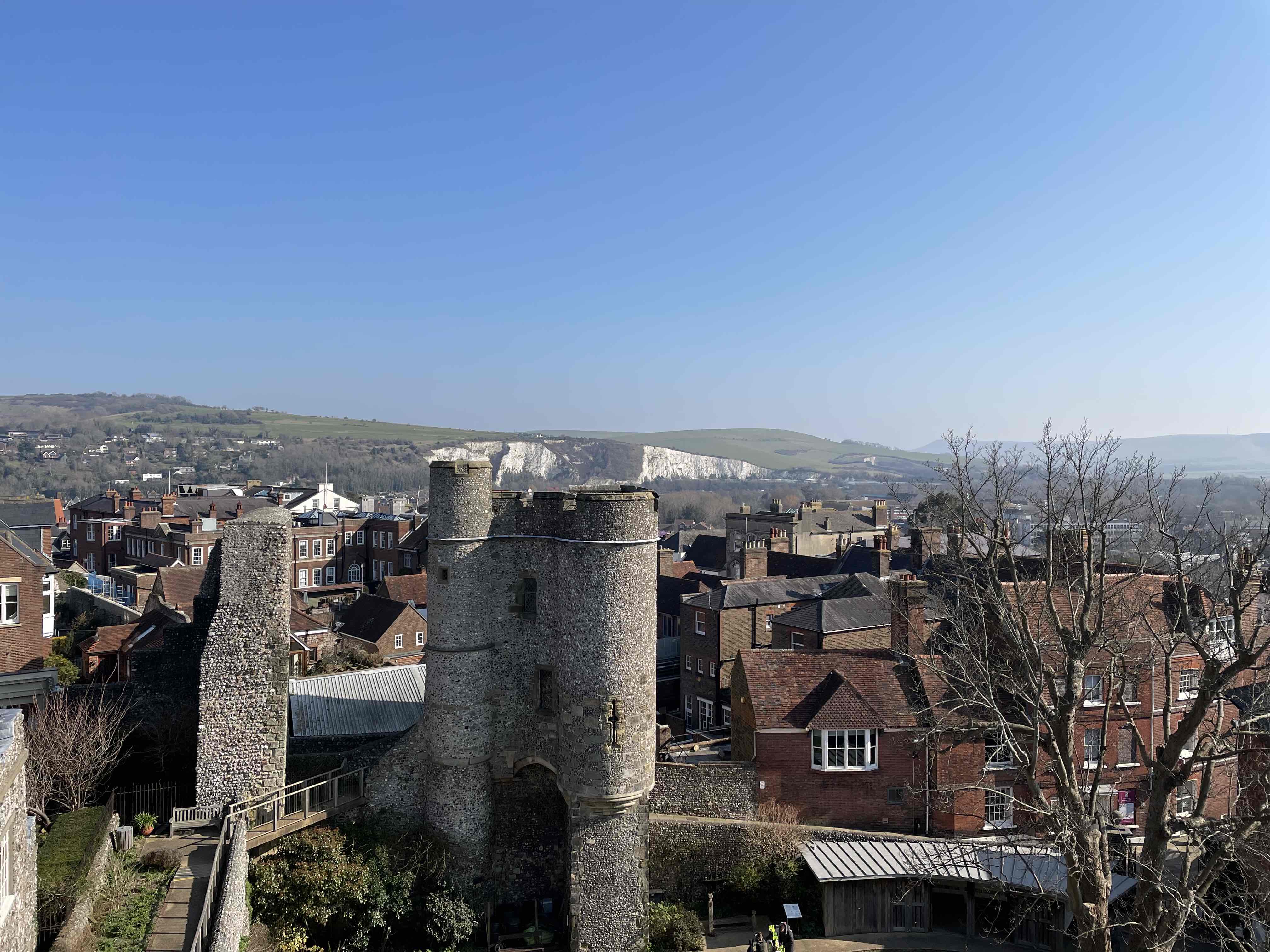 In the 1500s you wouldn't be keen to line up at the local Job Centre for the position of gongfermor at the castle.
In the 1500s you wouldn't be keen to line up at the local Job Centre for the position of gongfermor at the castle.
It was a shitty job.
But on to more pleasant matters in small, historic Lewes.
Anne of Cleves came here in the mid 16th century when her marriage to Henry VIII was annulled and she has a nice property on Southover High Street outside of the town which has now grown up around it.
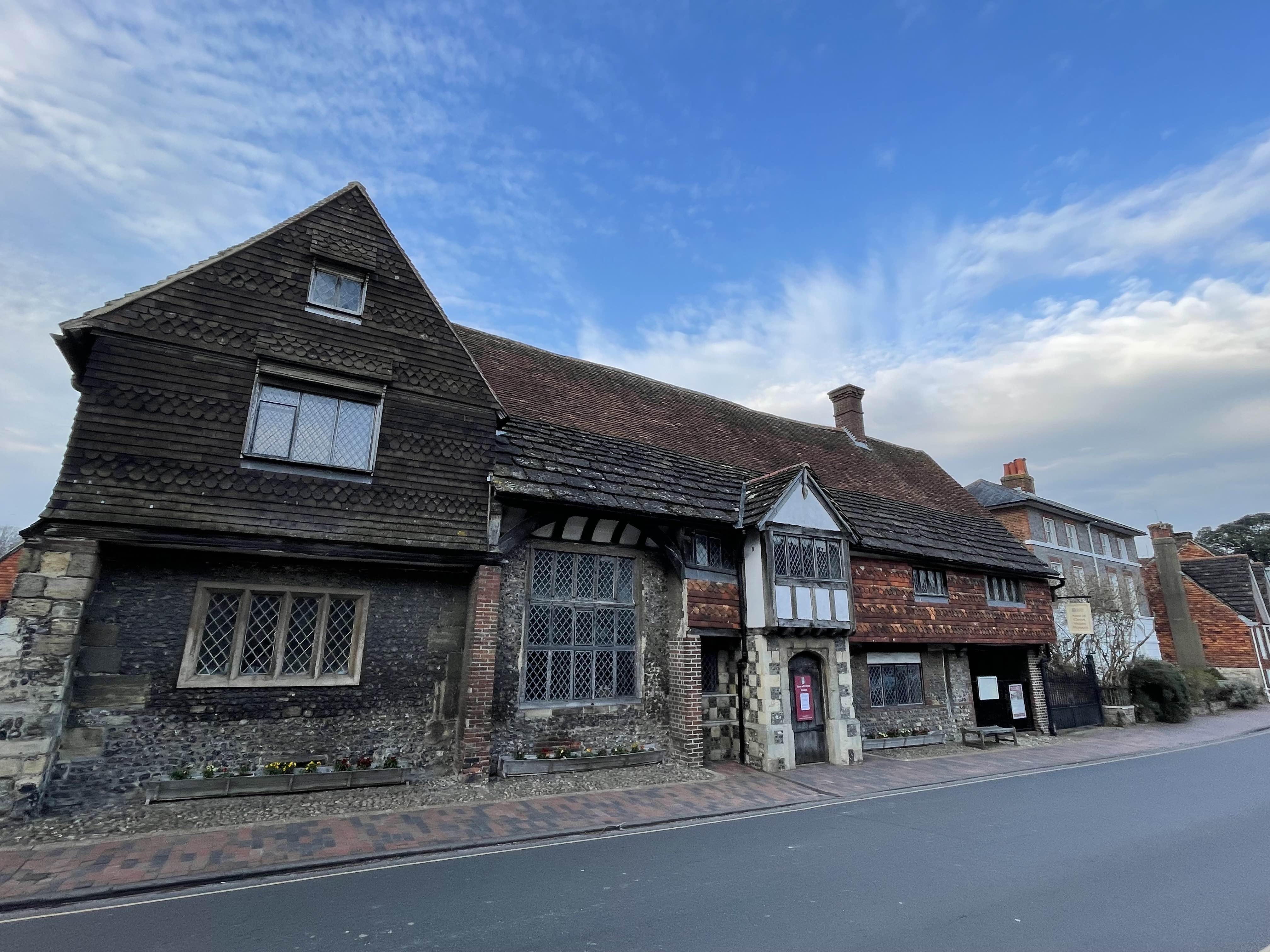 The noise from cars, trucks and motorcycles must keep her awake at night.
The noise from cars, trucks and motorcycles must keep her awake at night.
Sir Michael Jagger was held overnight at the prison on the other side of Lewes while on remand on a drugs charge in the late Sixties.
But Lewes -- with lovely old shop frontages, the customary antique stores and much lesser secondhand places, a shop exclusively selling bowties (only in Britain, huh?) and walks near the River Ouse -- was also home to important revolutionaries who paved the way for democracy.
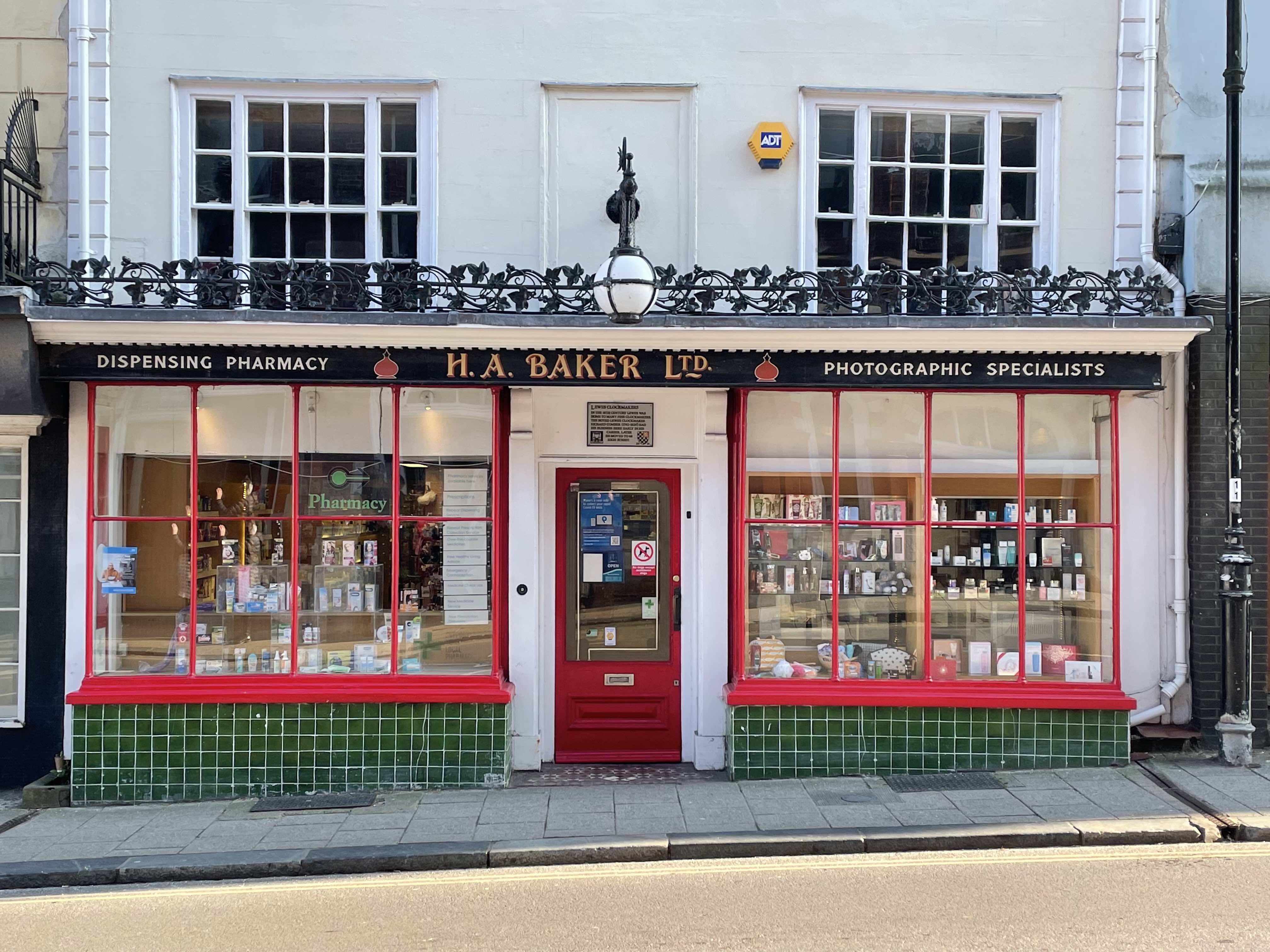 Here was where Simon de Montfort led the opposition to Henry III in the mid-13th century, defeated him at the Battle of Lewes just to the west of the castle and established a rudimentary parliamentary democracy which included ordinary citizens.
Here was where Simon de Montfort led the opposition to Henry III in the mid-13th century, defeated him at the Battle of Lewes just to the west of the castle and established a rudimentary parliamentary democracy which included ordinary citizens.
It’s a complex story of shifting loyalties and – as an unfortunate sidebar to what could have been a wonderful story – lead to the massacre of Jews in Worcester, Canterbury and Winchester.
But the notion of wider representation was seeded.
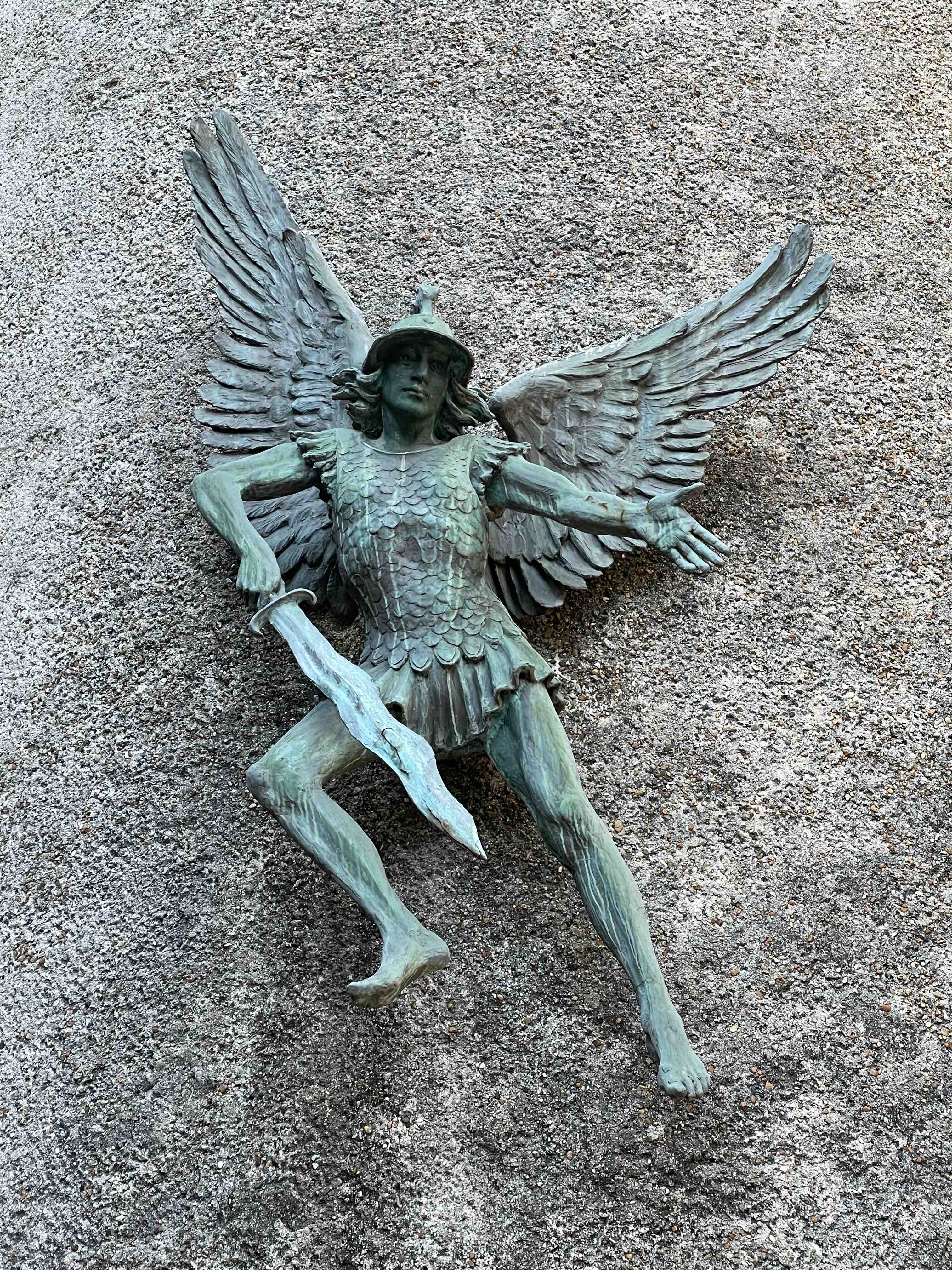 And in Lewes is the home of Tom Paine whose treatise The Rights of Man published in 1791 was an important document in the American Revolution.
And in Lewes is the home of Tom Paine whose treatise The Rights of Man published in 1791 was an important document in the American Revolution.
Paine was born in Norfolk and lived something of an itinerant life with his parents, then time at sea, as a taxman (excise officer) and school teacher. It was teaching position which brought him to Lewes in his late 20s.
It was a time of increasing democratic ferment, especially in France and the New World, and he wrote his first political pamphlet while in Lewes working as grocer.
He was advocating better pay and conditions for the excise officers (but was fired from that service for not turning up enough) and when his small business failed he left his new wife, moved to London and then on to the American colonies after having met Benjamin Franklin who was in Britain at the time.
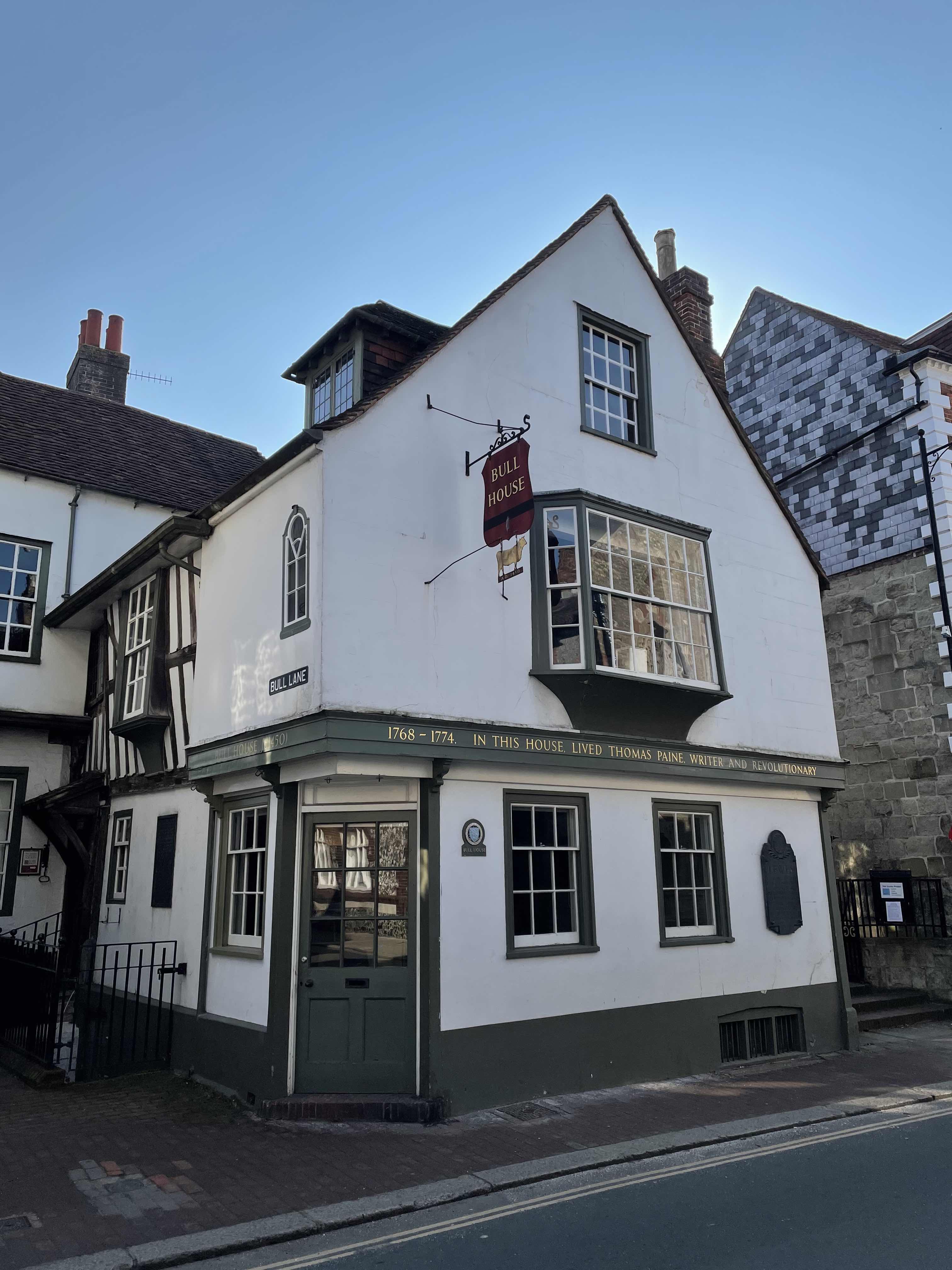 As a pamphleteer, Paine was in the right place at the right time for the nascent independence movement and thereafter his publications became a template for what would follow. It seems he may have been on hand when the Declaration of Independence was drafted.
As a pamphleteer, Paine was in the right place at the right time for the nascent independence movement and thereafter his publications became a template for what would follow. It seems he may have been on hand when the Declaration of Independence was drafted.
His life remained messy and itinerant, but it was when in London after time in revolutionary Paris that he wrote The Rights of Man about representative government.
Paine is a fascinating character – he also designed iron bridges and had an inventive streak – but he never seemed too far from prison for debt or his writings, and every now and again that is exactly where he would end up.
Always for longer than Mick Jagger.
But he lived until he was 72, dying in New York, and his legacy is writing which inspired Napoleon and the fathers of the American independence movement.
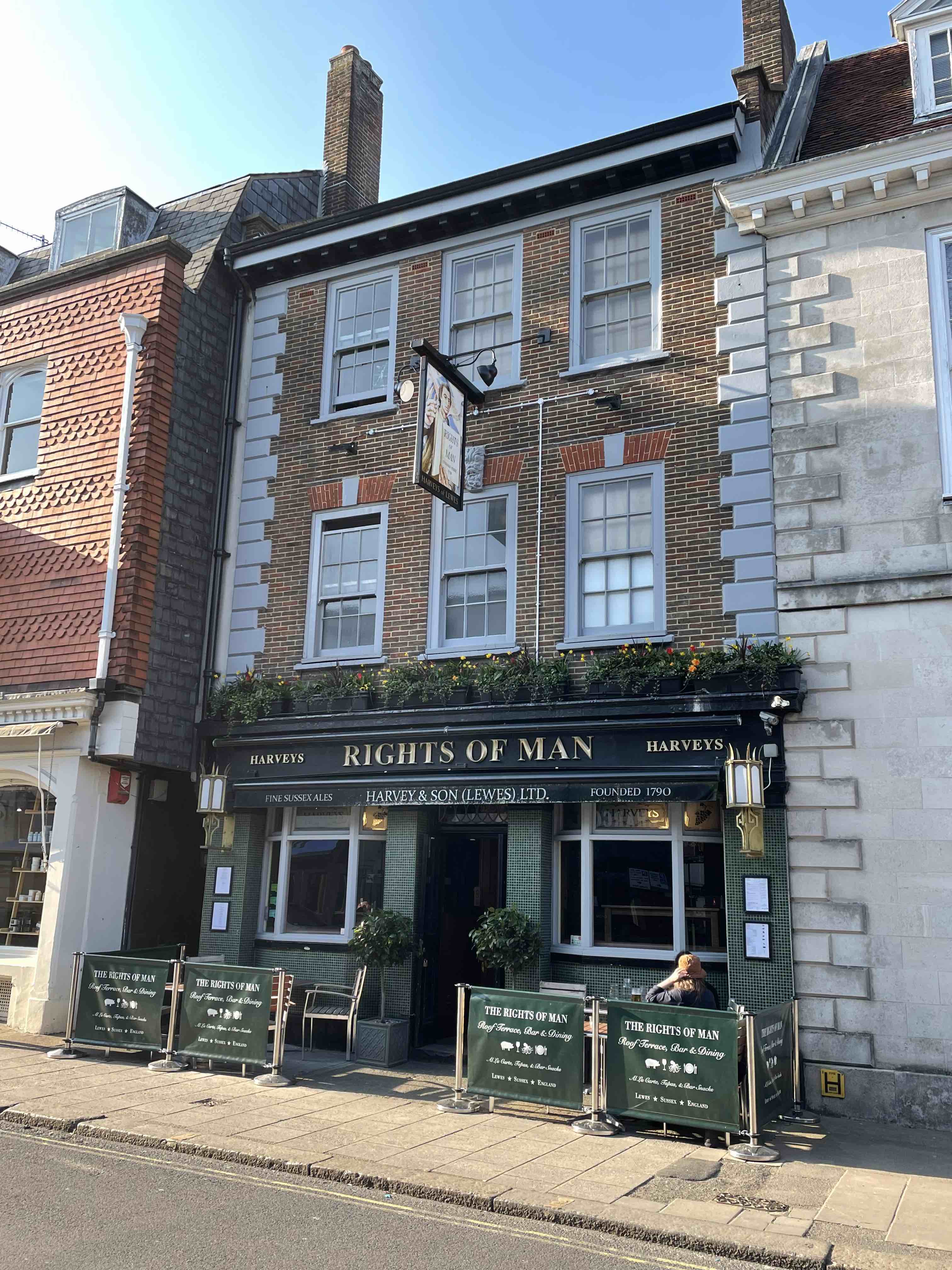 In Lewes his former home is right there on High Street, one of those narrow, main thoroughfares.
In Lewes his former home is right there on High Street, one of those narrow, main thoroughfares.
It's just up the road from a very pleasant pub where our young waitress took photographs of us enjoying lunch . . . although in every one she successfully managed to almost entirely exclude most of me.
You'd expect a more democratic and inclusive photo in a pub called . . . The Rights of Man.
.
For other travels stories at Elsewhere start here.
Some are serious, some far from it.
.
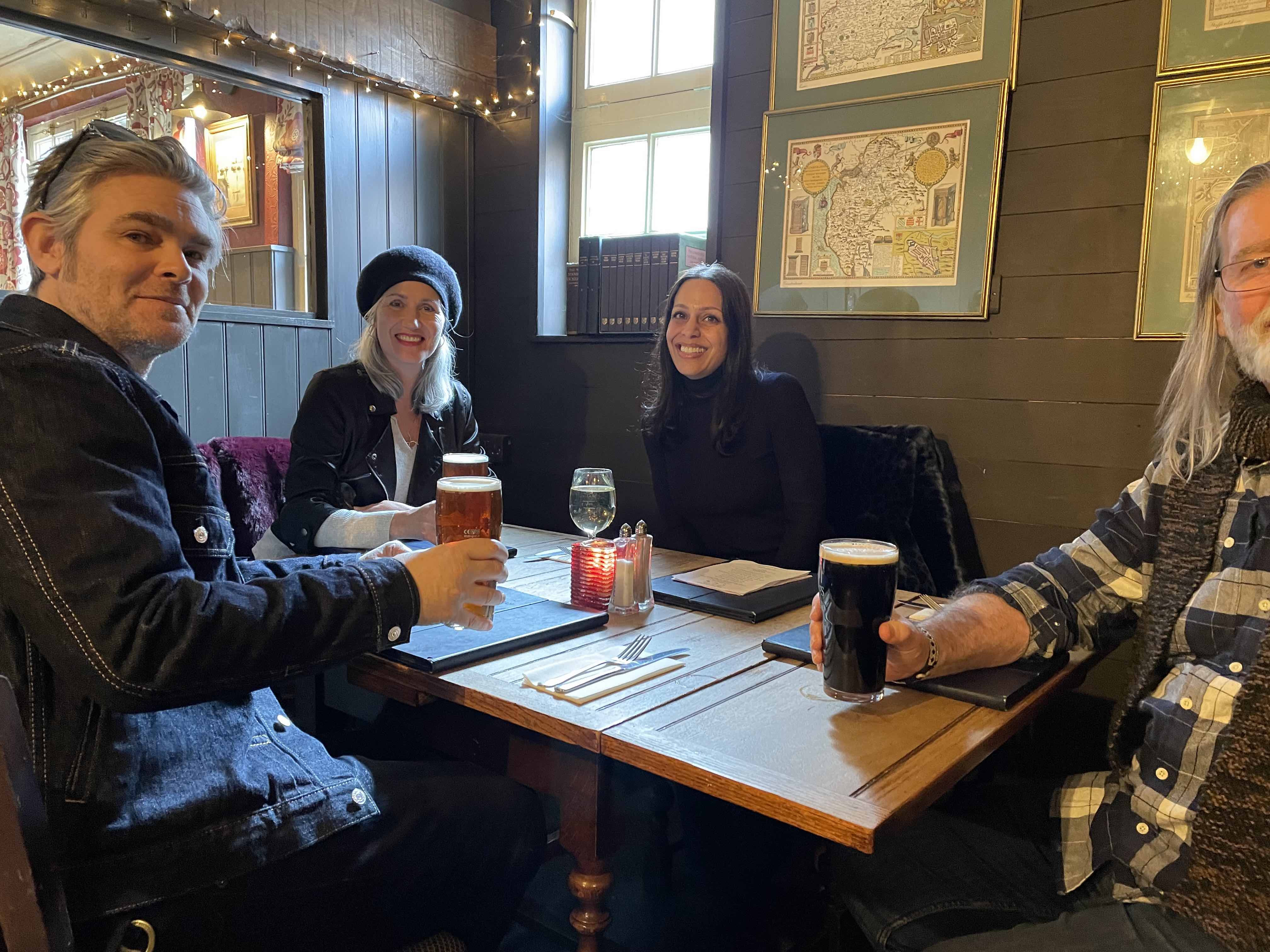

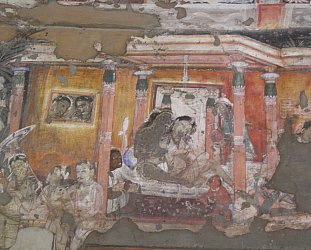
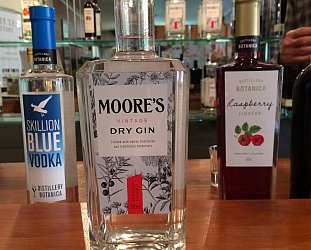
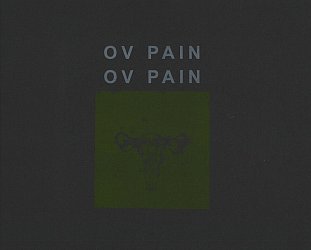

post a comment